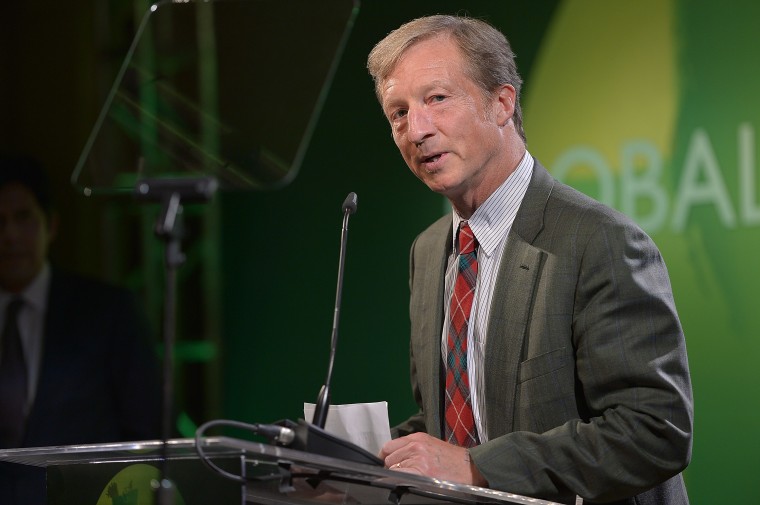A group of United Airlines' most frequent flyers, including billionaire investor Tom Steyer, on Monday called on the big airline to stop blocking climate change actions.
United Airlines Inc has opposed "multiple efforts to curb climate change pollution, at home and abroad," the group, Flying Clean, said in a letter to Chief Executive Jeff Smisek.
Flying Clean, launched by several nongovernmental organizations seeking to reduce carbon emissions from airplanes, sent its letter ahead of United's annual shareholder meeting on Wednesday in Arlington, Virginia. It had 85,000 electronic signatures including 2,700 elite frequent flyers.
"If United wants to stay competitive, it needs to take climate change seriously and act in its customers' - and the planet's - best interest," said Steyer, a former hedge fund manager turned environmental campaigner.
The letter criticized United for leading a lawsuit to fight a European law that would make airlines pay for carbon dioxide they emit on flights to and from EU airports; lobbying in the United States against emissions initiatives; and trying to reverse California's low-carbon fuel standard.
United Airlines spokeswoman Megan McCarthy disputed the claims, and said the airline is on a task force of the International Air Transport Association, an industry lobbying group seeking a global solution to airline emissions.
"The entire industry got together to say that we supported a global approach rather than a regional approach," she said.
Flying Clean also asked United to support a global market-based approach to cutting emissions in the U.N.'s International Civil Aviation Organization. That effort would cut emissions by more than current voluntary goals.
Last week, the industry lobbying group said it will ask governments to create a system through which airlines would offset any increase in emissions after 2020 by buying carbon credits from projects that reduce emissions in other sectors.
Some analysts doubted whether the airline industry would actually pressure governments to ink a deal in time for the U.N. group's general assembly in Montreal beginning Sept. 24.
Frank Loy, a former airline executive who led U.S. climate negotiations in the U.N. under President Clinton, said airlines should put their energy into pressure governments into securing a deal rather than trying to block one.
"A major airline like United being a leader would make a big difference," he said.
